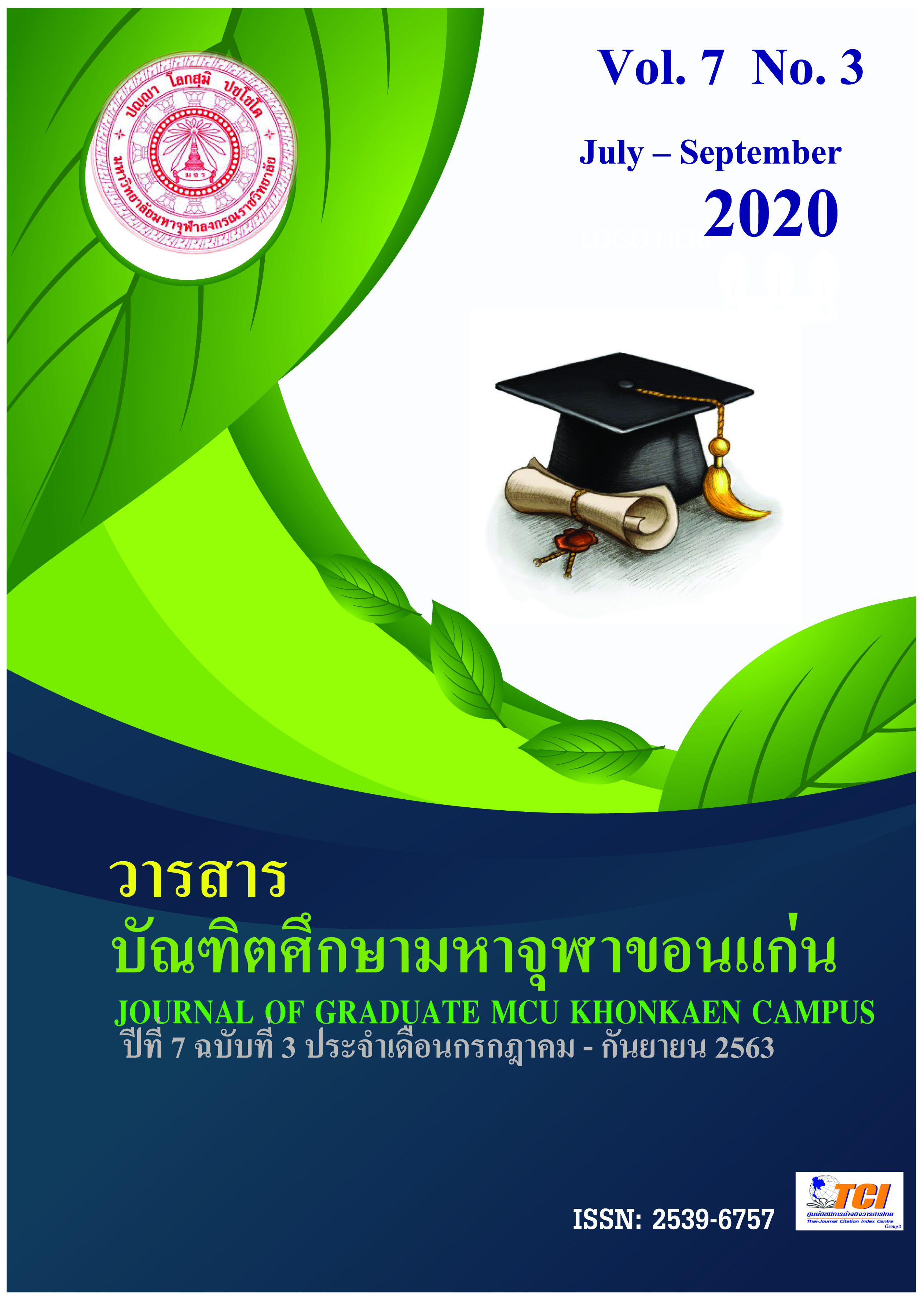EQUALITY : ACCORDING TO DEMOCRACY, DOES IT EXIST IN BUDDHISM
Main Article Content
Abstract
The principle of equality in accordance with democratic concepts appearing in the doctrine of Buddhism appears in both dharma and discipline. There are 5 principles of equality accepted by Buddhism. These are 1) the equality in human dignity, 2) the equality in social opportunities and living 3) the equality in law and discipline, 4) the civil rights conflict, and 5) political equality.The aims of equality in accordance with the Buddhist concept are to create brotherhood in society and to be a social role model for the way of life of the people in the society to achieve happiness, peace, and tranquility with the principles of equality of all life in society.
Article Details
How to Cite
Pimpun, W. (2020). EQUALITY : ACCORDING TO DEMOCRACY, DOES IT EXIST IN BUDDHISM. Journal of Graduate MCU KhonKaen Campus, 7(3), 15–31. retrieved from https://so02.tci-thaijo.org/index.php/jg-mcukk/article/view/241902
Section
Academic Article
References
จิรโชค(บรรพต) วีระสัยและคณะ. (2538). รัฐศาสตร์ทั่วไป. กรุงเทพมหานคร : มหาวิทยาลัยรามคำแหง.
พระมหาแหวนทอง ปุญฺญาคโม. (2540). วิธีการสอนของพระพุทธเจ้าตามที่ปรากฏในพระสูตรและพระวินัย. กรุงเทพมหานคร : โรงพิมพ์มหามกุฏราชวิทยาลัย.
มหาจุฬาลงกรณราชวิทยาลัย. (2539). พระไตรปิฎกภาษาไทย ฉบับมหาจุฬาลงกรณ์ราชวิทยาลัย.กรุงเทพมหานคร : โรงพิมพ์มหาจุฬาลงกรราชวิทยาลัย.
วิรัช ถิรพันธุ์เมธี. (2533). ดร.เอ็มเบ็ดก้าร์ รัฐบุรุษจากสลัม. พิมพ์ครั้งที่๒. กรุงเทพมหานคร : โรงพิมพ์มหาจุฬาลงกรณ์ราชวิทยาลัย.
สมเด็จพระพุทธโฆษาจารย (ป.อ.ปยุตฺโต). (2560). พจนานุกรม ฉบับประมวลศัพท์. กรุงเทพมหานคร : โรงพิมพ์มหาจุฬาลงกรณราชวิทยาลัย.
สมภาร พรมทา. (2542). พุทธปรัชญา มนุษย์ สังคม และปัญหาจริยธรรม. กรุงเทพมหานคร : โรงพิมพ์จุฬาลงกรณ์มหาวิทยาลัย.
พระมหาแหวนทอง ปุญฺญาคโม. (2540). วิธีการสอนของพระพุทธเจ้าตามที่ปรากฏในพระสูตรและพระวินัย. กรุงเทพมหานคร : โรงพิมพ์มหามกุฏราชวิทยาลัย.
มหาจุฬาลงกรณราชวิทยาลัย. (2539). พระไตรปิฎกภาษาไทย ฉบับมหาจุฬาลงกรณ์ราชวิทยาลัย.กรุงเทพมหานคร : โรงพิมพ์มหาจุฬาลงกรราชวิทยาลัย.
วิรัช ถิรพันธุ์เมธี. (2533). ดร.เอ็มเบ็ดก้าร์ รัฐบุรุษจากสลัม. พิมพ์ครั้งที่๒. กรุงเทพมหานคร : โรงพิมพ์มหาจุฬาลงกรณ์ราชวิทยาลัย.
สมเด็จพระพุทธโฆษาจารย (ป.อ.ปยุตฺโต). (2560). พจนานุกรม ฉบับประมวลศัพท์. กรุงเทพมหานคร : โรงพิมพ์มหาจุฬาลงกรณราชวิทยาลัย.
สมภาร พรมทา. (2542). พุทธปรัชญา มนุษย์ สังคม และปัญหาจริยธรรม. กรุงเทพมหานคร : โรงพิมพ์จุฬาลงกรณ์มหาวิทยาลัย.

